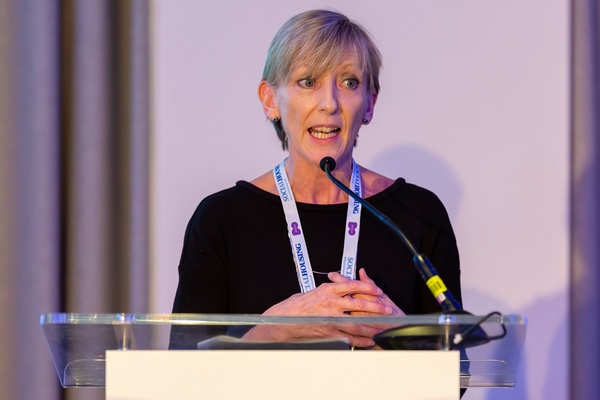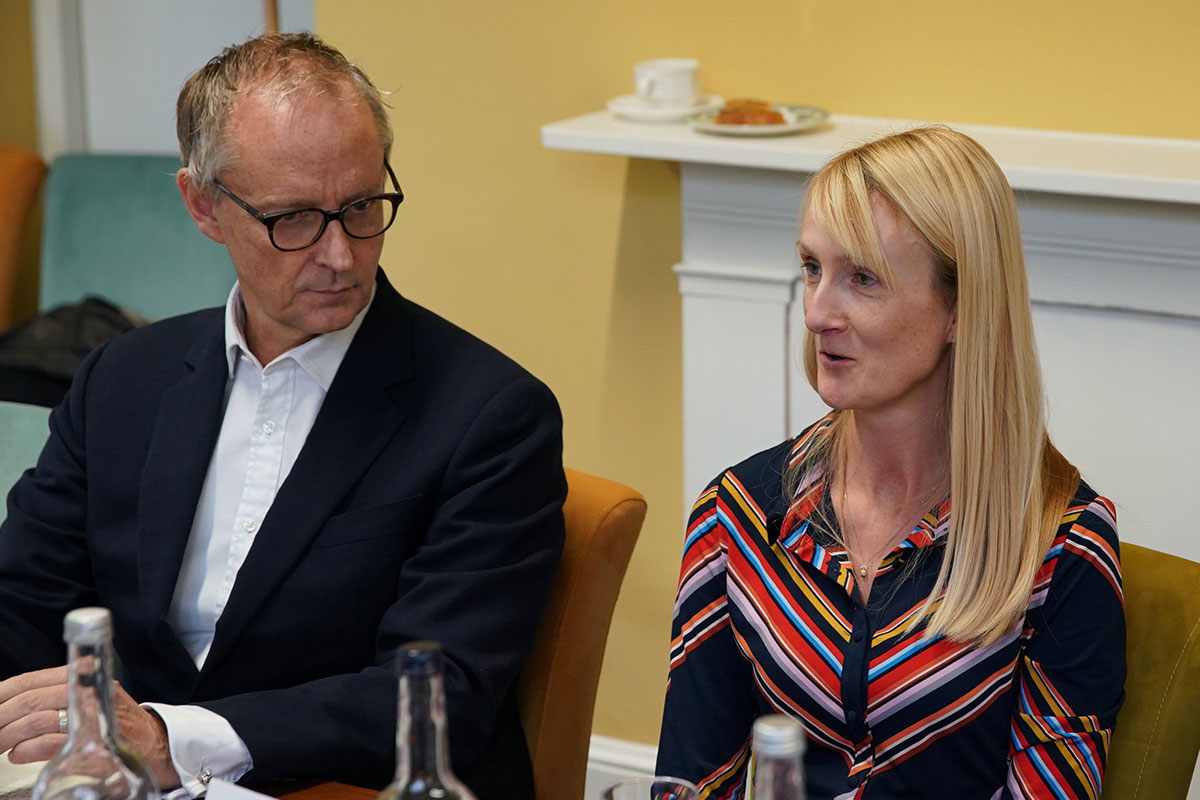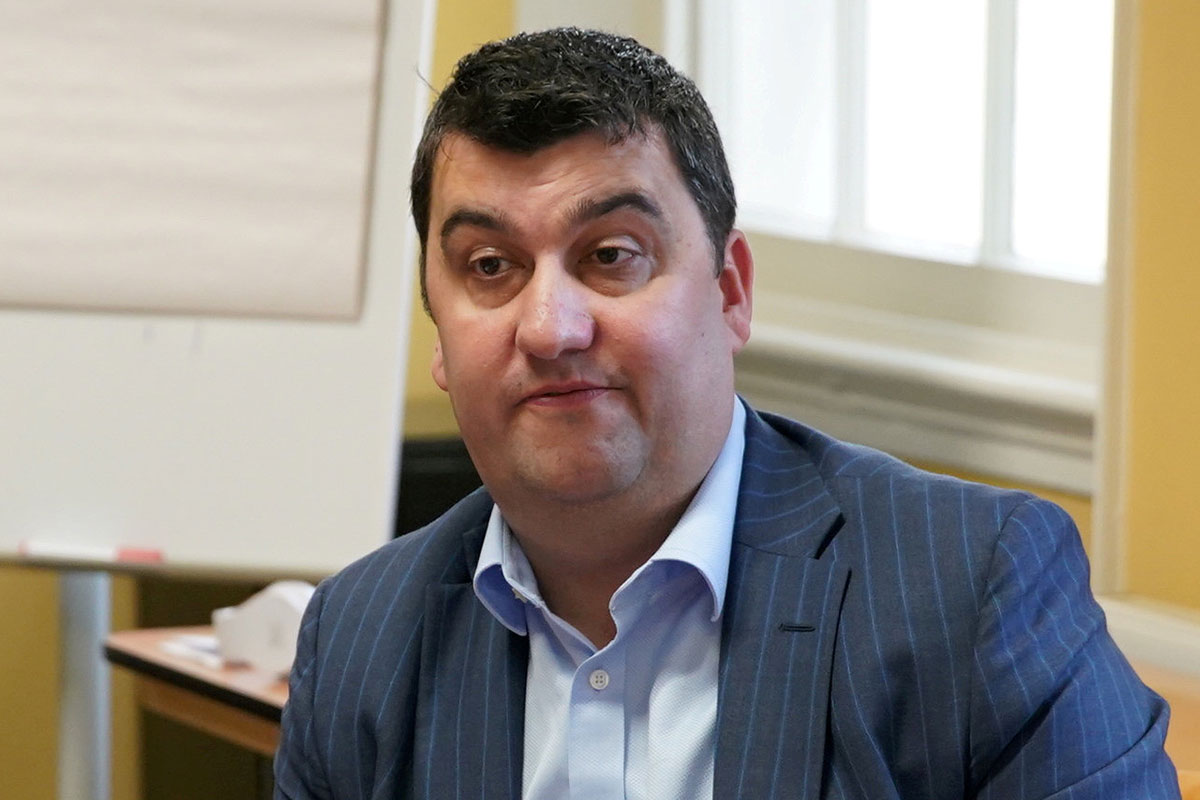How is political uncertainty affecting the sector?
Housing leaders share their views on how the fast-changing political landscape is impacting their outlook and the way they operate. Robyn Wilson reports. Photography by SWNS
In association with:

A looming general election, an extended Brexit deadline and balancing investment in existing and new homes are some of the challenges facing housing associations as the end of 2019 fast approaches.
Exactly how housing providers navigate these uncertain times and deliver with purpose was the topic of discussion at a November Social Housing round table, held in association with accounting firm BDO and joined by some of the sector’s leading players from across the country.
Kicking off the conversation, Luke Cross, editor of Social Housing and round table chair, asks whether this is a time for optimism in the sector – a question that is met with a somewhat mixed response.
“You’ve got to be optimistic, otherwise I’m not really sure what it is we’re doing,” says Paul Edwards, deputy chief executive officer at CHP.
“Demand for our products is only going to increase as times get tougher, so we’ve got to remain optimistic, stick to our purpose and house as many people as we can.”
This is met with several nodding heads around the table, albeit with a few caveats. John Bruton, executive director of finance at Stonewater, says his organisation is “stress testing” in the face of uncertainty.
Mark Washer, chief executive at Sovereign, makes a similar point, saying he feels “qualified optimism”, while adding that the sector needs to “drown out some of the noise around us”.
But Kate Davies, Notting Hill Genesis’s chief executive, bucks the trend. “This is a really difficult time for us, and I think we need to face it. It may not be as bad for people outside London but inside it is really bad,” she says.
“Government grant has been reduced to such an extent that our new affordable homes are only 10 per cent funded by grant and 90 per cent internal resources [such as profits, plus borrowing]. With the downturn in the market, our internal resources – primarily our profits – are reduced and this impacts on our ability to build affordable homes.” This 10 per cent translates as scheme costs of £2.19bn and grant of £228m.
“While we have 8,000 plots in our land bank, and we were aiming through the merger of Genesis and Notting Hill to build 2,000 new homes a year, due to uncertainty in the market and a fall in the demand for new build homes we have scaled back our ambition to 1,400 homes. That’s quite a big reduction, and means less affordable rented homes.” Ms Davies goes on to reveal exactly what this means in terms of new build delivery amid a slowing sales market.
She says NHG has been forced to “scale back our ambition”. The group has 8,000 plots secured in pre-development, with 3,700 homes on site and is set for 2,500 completions this year.
“We have scaled back to 1,400 homes per year until the market recovers,” she says.
Mark Washer, chief executive, Sovereign and Anne Waterhouse, deputy chief executive, A2Dominion
Her point about this being more of a London-focused problem chimes with a couple of participants around the table, including North of England-based Together Housing’s group financial director, Michelle Allott, who says demand and supply issues are very different in her region.
Mr Washer says his organisation is actually increasing its delivery. “Sovereign is going from 1,000 homes a year three years ago up to 2,000, and we’re going from 90 per cent Section 106 to 50 per cent land-led. The market outside London is quite different.”
The discussion ties into a BDO Social Housing Barometer published this October, which gauged how ready and willing housing associations are in playing an increased role in supplying homes in the UK. The results showed growing caution across the sector, particularly when it came to the economy, with no respondents identifying an increase in confidence in the UK economy, compared with a 27 per cent rise in confidence the year before.
Phil Cliftlands, national head of not-for-profit at BDO, who led the research, says he senses a potential difference in mood between management teams and board members, leading to a wider discussion around the dynamic between the two.
There is a clear agreement around the table that management must instil confidence to avoid board members delving too far into the operational side of the business – as Ebele Akojie, chief financial officer at One Housing, puts it: “Boards don’t like surprises.”
“So as long as we’re using our governance structures in a way that ensures there’s a lot of transparency and we are communicating information in a way that the board can understand and go along with, then I don’t think there’s a disconnect,” she says.
Ebele Akojie, chief financial officer, One Housing
“The disconnect comes when the assurance frameworks don’t work and the board doesn’t trust the information they are receiving.”
To this, Anne Waterhouse, deputy chief executive at A2Dominion, highlights boards’ role in protecting organisations, saying that “boards are much more aware of reputational issues”.
She adds: “I imagine there have always been issues across the sector, associations will have always got things right and wrong, but actually we’re in an environment now where if you get something wrong it’s much more visible.
“That’s where we’re seeing that point around boards being a bit less optimistic because that’s becoming a lot more apparent to them and we need to manage that more effectively.”
Paul Richmond, director of finance and resources at Watford Community Housing, who also has a non-executive role, says it is hard to be strategic in the current climate.
“You’ve got health and safety coming up the agenda, tenancy sustainment and economic strains [and] when there’s all of that focus it’s then hard to be strategic,” he says.
Kate Davies, chief executive, Notting Hill Genesis, Anne Turner, board member, Network Homes, and chair, Network Treasury Services and Paul Richmond, director of finance and resources, Watford Community Housing
This leads the conversation to the economics of investing in existing stock at the same time as building new homes. Mr Washer notes the difference in satisfaction scores between tenants moving into new or refurbished homes, with the former receiving higher “eights, nines or 10s”.
Meanwhile, the economic case for investing in existing properties is also less clear cut than when building new homes. Mr Washer adds that the sector needs to think more long term when it comes to improving the quality of its stock.
A number of the participants share their experiences in this area, including Mr Bruton, who says that after having an issue with demand in housing for older people, Stonewater decided to upgrade and review its stock.
“We decommissioned some of it, we disposed of some of it, but what we kept we’ve brought up to a much higher standard. That’s the area where we’ve made a big change and it works very well now. And having done it, it becomes sustainable, but there was an investment that was needed.”
Elizabeth Froude, chief executive of Platform Housing, says her organisation made small investments to improve the attractiveness of one of its estates, which had a big positive outcome.
“What we’ve started doing is taking a slice off our investment programme and just bringing places up to date to make them look fresh, clean and modern.
Phil Cliftlands, head of not-for-profit, BDO
“It doesn’t cost an absolute fortune but the psychology of what it’s done to the place is absolutely huge, so what we’re trying to do is amplify that and see how we can roll it [out] to other schemes that have reasonable density.”
Ms Waterhouse echoes this, saying there is a positive impact of residents having “that security and sense of home”, which A2Dominion is seeing coming through in some of its trials. “From a financial perspective, that may mean it might not completely balance out, but you start to see a bit of rationale of why we might do some of those targeted investments in some of those estates.”
Mr Edwards, however, is at the start of this journey with CHP, having only just begun a trial. He says the group is piloting a small number of voids to see if it makes an economic difference in the number of repairs it has to do at a start of a tenancy.
“We’ve got 50:50 in terms of letting of new homes and ‘pre-loved’ homes over the past couple of years. We’re just trying to build that economic argument [of investing in existing stock]. I don’t think we’ll get that economic argument, but I’d love for there to be one.”
On this, Anne Turner, board member at Network Homes, says it is important to measure both qualitative and quantitative key performance indicators to see whether organisations are getting increased customer satisfaction as well as reduced voids.
Ms Allott says, however, this can pose further questions. “Sometimes the stats don’t come out as you’d imagine so you invest a lot of money and the customer satisfaction doesn’t vary in huge ways, so you start to question why you are doing those things.”
Paul Richmond, director of finance and resources, Watford Community Housing
Paul Dolan, chief executive at Accent, makes a wider point that associations should be resisting taking a “blind approach to how we profile investment”, adding that “in some of these cases it’s not about the economic model, it needs to be about what’s the right thing”.
It’s at this point that the chair asks why the sector is taking such a close look at quality and existing stock now – has the sector neglected existing properties in the past? Has there been a preoccupation with new build?
This is met with a firm “no” from the table, with many noting how the Grenfell Tower tragedy has fundamentally changed the sector – from asset management strategies to boosting “tenant power”. Ms Froude points out that there is a challenge in having to spread a certain amount of money across a large number of units to ensure homes are fit for purpose. “I think that’s probably the reality we have to live in,” she says.
But there is a broader acceptance that the sector will need to do more to improve tenant satisfaction.
Mr Bruton highlights: “We see an environment where the world generally has increased expectation of service from service organisations…and that’s something we need to respond to.”
Whether or not this improvement will be driven in house or with supply-chain partners is also up for debate, with the participants agreeing on the importance of bringing the supply chain with them, particularly with services around repairs maintenance.
Paul Dolan, chief executive, Accent
Ms Waterhouse notes: “As far as our customers are concerned when a person [from the supply chain] comes into the house to do something, they see that as [the association] doing it.”
Ms Akojie says the sector also needs to get better at analysing its stock and business data in order to improve. “We’re not always good at analysing what the data is telling us, whether it’s about a customer or suppliers or the key contractors reviews, but the more intelligence we get about the data we hold, the better.”
This feeds into a wider point on improving contract management. Ms Akojie says: “As a sector that’s another area where we’ve been weak, whether it’s internal or external, our ability to hold our supply chain to account against the contract.
“We spend a lot of time putting these contracts into place but my sense in the sector generally is that historically we have not been very good at managing those contracts. So improving the skill set in an organisation would yield a lot of dividends.”
Ms Davies says collaboration on areas like technology could also help improve associations’ businesses while driving efficiencies, with Notting Hill Genesis having recently developed a platform through which tenants can pay their rent or get a repair done via their phone – something which becomes even more important when she says that these requirements cover around 80 per cent of tenant transactions. “This frees up staff to deal with the more complex issues and we are in discussions with other housing associations and local authorities about whether they will come in on this with us,” she adds.
Elsewhere, on the topic of collaboration and partnerships, Ms Allott talks about the benefits of forming joint ventures in the sector – particularly from a financial perspective.
Michelle Allott, group finance director, Together Housing
She says: “I know a number of associations [are] competing against each other for Section 106 agreements and the only winner is the developer, so one way around it is for us to go through the joint venture route to guarantee that price.”
From this, it becomes apparent that partnering with local authorities could also reap a number of benefits for associations, with Ms Froude saying the sector has a chance “to act as a facilitator for authorities”.
“We’ve got one local authority that has got a site and wants to do a masterplan but one of the sites belongs to a different local authority, so they’ve got this stalemate going on. But we work on both sides of the fence and could be the voice that says: ‘We would like to build with both of you, let’s work together.’”
The group’s views on local government contrast somewhat with how they see central government.
As Mr Washer puts it: “We absolutely have to own our destiny and I would go as far to say I don’t really care what government is in power.”
That said, there is an acceptance that engagement with local MPs is important, especially when trying to “control the narrative” around topics such as new build delivery or association surpluses – a theme that comes up repeatedly during the discussion.
“We all run our businesses well and will be waiting to achieve those profits and surpluses to reinvest, which then sees us as a sector producing high levels [of profit],” says Ms Waterhouse.
“Arguably if we were taking more risk and spending that before we achieved it, we’d show no surplus, meaning that would have an impact on governance.
“None of us would choose to run our businesses like that but we’ve got to explain what we’re doing with those surpluses effectively because some people don’t understand.”
Ms Froude adds: “Any organisation that makes what looks like a big fat profit every year probably invests two or three times that in investing into new homes, but that message is too quiet.”
For all the concerns raised around the table, participants are upbeat about the state of the funding markets, with Ms Davies describing it as the sector’s “silver lining, with low interest rates and lots of money available”.
Mr Dolan says Accent’s recent record-breaking £350m bond issue in July was a demonstration of there being “real investor appetite in the sector”.
Ms Waterhouse adds: “We need to make sure we have the capacity so that when we get these deals, the funding isn’t just about creating the buffers or liquidity that we need – it is actually to make sure we keep moving our businesses forward, which is something we need to be mindful of.”
Mr Richmond agrees with this, while highlighting the importance of being “patient” as a business. He says: “There potentially may be more opportunities around the corner, which may be to others’ detriment unfortunately, but it’s about making sure you’re not running to get that capital when you need it and that you’ve got it already tied up.”
And development potential could become increasingly common, particularly as the market continues to shift, according to Ms Froude.
“There are opportunities for us to pick up development sites that are suddenly less palatable for mainstream commercial builders and if it’s too big for any one of us, then we can find someone else to work with,” she says – a demonstration that the sector is still hungry to deliver.
The discussion ties into a BDO Social Housing Barometer published this October, which gauged how ready and willing housing associations are in playing an increased role in supplying homes in the UK.
Attendees
Ebele Akojie
Chief financial officer, One Housing
Michelle Allott
Group finance director, Together Housing
John Bruton
Executive director of finance, Stonewater
Phil Cliftlands
Head of not-for-profit, BDO
Luke Cross
Chair, and editor, Social Housing
Kate Davies
Chief executive, Notting Hill Genesis
Paul Dolan
Chief executive, Accent
Paul Edwards
Chief financial officer and deputy chief executive, CHP
Elizabeth Froude
Chief executive, Platform Housing
Paul Richmond
Director of finance and resources, Watford Community Housing
Anne Turner
Board member, Network Homes, and chair, Network Treasury Services
Mark Washer
Chief executive, Sovereign
Anne Waterhouse
Deputy chief executive, A2Dominion
RELATED











